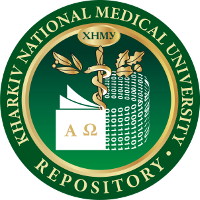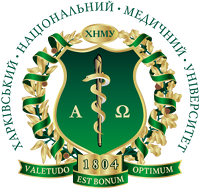Please use this identifier to cite or link to this item:
http://repo.knmu.edu.ua/handle/123456789/21739Full metadata record
| DC Field | Value | Language |
|---|---|---|
| dc.contributor.author | Сорокіна, І.В. | - |
| dc.contributor.author | Мирошниченко, М.С. | - |
| dc.contributor.author | Капустник, Наталія Володимирівна | - |
| dc.contributor.author | Арсен’єв, О.В. | - |
| dc.date.accessioned | 2018-12-10T08:31:31Z | - |
| dc.date.available | 2018-12-10T08:31:31Z | - |
| dc.date.issued | 2018-02 | - |
| dc.identifier.citation | Патологія органів сечовидільної системи у дитячого населення харківської області: фактори ризику та прогноз розвитку / І. В. Сорокіна, М. С. Мирошниченко, Н. В. Капустник, О. В. Арсен’єв // Український журнал медицини, біології та спорту. – 2018. – Том 3, № 2 (11). – С. 127–133. | ru_RU |
| dc.identifier.uri | https://repo.knmu.edu.ua/handle/123456789/21739 | - |
| dc.description.abstract | Urinary system organs diseases in children relate to the actual problems of medical science and practice in Ukraine and other countries of the world. It is very important to conduct the epidemiological researches aimed at studying the prevalence of these diseases, identifying risk factors with the further calculation of the diseases development prognosis. This will help improve the medical care of children with urinary system organs pathology. The purpose of the study was to determine the risk factors and the prognosis of the urinary system organs diseases in the children of Kharkiv region. The material of the study included information about the child sex, weight and length of the child’s body at birth, age of his/her mother’s sexual life beginning, parents’ bad habits, nature of parents work, abortions in his/ her mother’s anamnesis, characteristics of the course of pregnancy and parturition, genital and extragenital pathology in mothers, etc. This information was obtained by questioning the parents whose children were healthy and have different urinary system organs diseases. Statistical methods of investigation were used. The authors found that the risk factors for the development of urinary system organs pathology in the children of Kharkiv region were decreased in comparison with physiological norm weight and length of a child’s body at birth, smoking and unemployment of their parents, abortions in mothers’ anamnesis, complications during pregnancy (placental insufficiency and preeclampsia) and parturition (detachment of placenta and abnormalities in labor), genital and extragenital pathology (urinary system organs diseases). On the basis of general discriminant models, we constructed a statistically significant model for forecasting the possibility of congenital or acquired pathology of the urinary system organs development in children. This method has a high accuracy of prognosis. The proposed method of prognosis can be used after the childbirth or after a child’s discharge from the hospital with the purpose of assigning this child to the risk group for the development of congenital or acquired pathology of the urinary system, determining the further observation tactics, as well as the medical and preventive measures volume. Conclusions. In the course of the study, the risk factors for the development of the children urinary system pathology in Kharkiv region were identified. On the basis of general discriminant models, we constructed a statistically significant model for predicting the developmental pathology of this system’s organs, as well as its nature (congenital or acquired). | ru_RU |
| dc.language.iso | uk | ru_RU |
| dc.subject | risk factors | ru_RU |
| dc.subject | prognosis | ru_RU |
| dc.subject | pathology of the urinary system organs | ru_RU |
| dc.subject | children | ru_RU |
| dc.subject | Kharkiv region | ru_RU |
| dc.title | Патологія органів сечовидільної системи у дитячого населення харківської області: фактори ризику та прогноз розвитку | ru_RU |
| dc.type | Article | ru_RU |
| Appears in Collections: | Наукові праці. Кафедра акушерства та гінекології № 1 | |
Files in This Item:
| File | Description | Size | Format | |
|---|---|---|---|---|
| 1Сорокіна_ІВ_Мирошниченко_МС_Капустник_НВ_Арсен’єв_ОВ.pdf | 421,38 kB | Adobe PDF |  View/Open |
Items in DSpace are protected by copyright, with all rights reserved, unless otherwise indicated.

